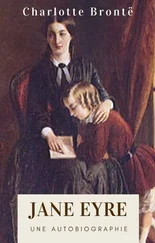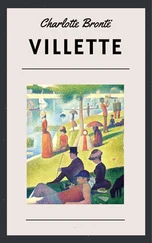Adam’s mother idolized the incomparable restaurateur Nat Gellin. Even years later, in the midst of monologues of pure old-fashioned hate, she would come out with something like “There isn’t another Jew in Boston who coulda done what your father did with that Irish restaurant.” What Adam took away from all that was the idea that a successful Jew was one who was a hit with the goyim.
Nat Gellin of Egan’s was a hit with the goyim, all right. Two years before Adam was born, Nat charmed an old-line Brahmin bank, First City National, into a prodigious loan and bought a half interest in Egan’s from the original Michael F. X. Egan’s five children, who were happy to get some cash out of the place in the here and now. Then he bought a house in Brookline to go with it, even though it meant he was now leveraged over the moon. Adam spent the first five years of his life in what he would recognize years later was a big, elegant Georgian house in Brookline, built about 1910 on a small lot, after the urban fashion of the day, in what was no doubt the right section back then and wasn’t bad now. Nat’s hubris was leveraged up to the ultimate, too. His ascension from salaried manager to profit-sharing full partner made him feel that he had risen to a higher social and, one might say, romantic level. One night, while wafting bonhomie in his restaurant, he met a blond twenty-three-year-old recently graduated from Wellesley, a WASP with all sorts of Ivy League and Beacon Hill connections, and in due course he began having to stay later and later at night to wrap up all the loose ends in his establishment, the operation of which was a matter of infinite complexity, after which, nevertheless, came the inevitable drive back to Brookline and to Frankie.
Frankie. He had grown, and she hadn’t grown with him. She had grown older, however, and no longer looked pretty, cute, and bouncy as much as she did chunky, prematurely middle-aged, and not much different from any other uneducated American mom putting on weight and growing more and more remote from where things were happening, as she cooed and cooed in Brookline over her baby, Adam.
It was one Sunday, while Nat was in just such a gloomy yet hubristic mood, and she was in the sunroom watering some Lollipop Stamen lilies, that he decided he had to tell her straight out. He actually used those words: “I know it’s not your fault, Frankie, but I’ve grown, and you haven’t grown with me.”
He couldn’t have worded it in a worse way. He was not only telling her he was leaving her, he was also informing her that it was because she was an unsophisticated dimwit, an embarrassing zhlub. Adam was so young when it all happened that his memory contained nothing more than a single snapshot of his father—specifically, of his porky belly and his genitals emerging naked from the bathroom. He also had a snapshot of the moment his mother informed him Daddy was moving out, although he couldn’t remember how she put it. He was old enough a couple of years later to be quite aware that they were moving from the grand house in Brookline to the second floor of a not-so-great house in the West Roxbury section of Boston, although he was still too young to have any more than a vague idea of the status implications. His own personal status was fabulous. He was His Majesty the Only Child. His mother put him on that throne, sang his praises, worshiped him, strewed petals of adulation upon his every path. Inasmuch as his teachers also made a fuss over him, it never occurred to him that the elementary school he attended, along with a lot of unruly Irish, black, Italian, Chinese, Canuck, and Ukrainian children, might be somewhere toward the soggy bottom of the Boston public school system. He was royalty in the school building, too; His Majesty the Prodigy. It was only after he was thirteen and had a scholarship to Roxbury Latin, a famous and prestigious old private school, that he realized what a free fall it had been from Brookline to West Roxbury—and learned how it happened.
Nat Gellin’s divorce papers had roused all the bouncy spunk Frances Horowitz Gellin had possessed the day she met him, except that now it came out not as “cute,” but as revenge. There had been a time when Nat used to love regaling Frankie with war stories of the restaurant business, and she knew that restaurateurs treasured customers who paid cash. At that time, the only record of cash receipts was the tape that came out of the register—and the tape was thrown into the trash the moment the joint closed at night. The cash itself was a pie, up to the owners to divide as they thought best. For three months, Frankie and her lawyer went out in the middle of the night and retrieved those tapes from the trash outside Egan’s. The lawyer thought she was going to use the evidence as a threat to squeeze a better settlement out of her prosperous entrepreneur husband, but Frankie went straight to the federal government. Nat got off with a fine, but the fine was so enormous that he had to sell his half interest in Egan’s and the house in Brookline, and even after that he remained nailed to the ground by the bankers. The settlement, the alimony, the child support—those became nothing but words on a document. There was no longer any more than a pittance to be extracted from that well-known host and boulevardier Nat Gellin. And boy, did Frankie leave one dumbfounded, flummoxed, outstanding-billoxed lawyer staring at the remains of her case.
At the time, Frankie didn’t care, because she had had her revenge, and yes, it was sweet. She cared later on, when things got so bad that she had to take a job making cold telephone calls for the retail sales department of a cable television company, the sort of calls that interrupt people at home and make them wonder what kind of loathsome creep was so hard up as to take a job doing that. But not even free-floating scorn daunted her, since she was serving a higher cause: turning Adam into a star who would light up her life.
Until Adam started going to Roxbury Latin, no two people were more devoted to each other. Adam was an academic star throughout his school days, and the constant praise of others and the glitter of success in the boy’s own eyes did, indeed, light up Frankie’s life. As her part of the deal, Frankie kept Adam’s confidence—and ego—pumped up to astonishing proportions. There was nothing that could hold him back from going forth from West Roxbury and conquering the world. Frankie had never gone to synagogue again after her social downfall, and Adam grew up without any religion—or any but the most cursory knowledge of Judaism. But she did tell him about the Jewish people. Again he couldn’t remember exactly how she put it, but it was clear that the Jews were the greatest people on earth and Israel was the greatest nation on earth, and the United States, although a wonderful country in other ways, was riddled with anti-Semitism. Such was the foundation upon which Adam Gellin’s Weltanschauung, like many another’s, was built.
At Roxbury Latin, Adam learned a little too much about status distinctions for Frankie’s good. Roxbury Latin was anything but a snobbish school. In fact, it had an atmosphere of old-fashioned Protestant scrubbed-wood asceticism about it. Nevertheless, there were quite a few socially well-placed boys who went there and lots of sophisticated parents active in school projects. It was at Roxbury Latin that it first dawned on Adam that his mother, Frankie Gellin, the former Frances Horowitz, the woman who had not only nurtured him but fed his ego, fed his ego, fed it, fed it, fed it, fed it until he was a giant amid Boston’s swarms of ordinary people—this woman who had done all that was in fact a very ordinary person, an aging, tiny, round-shouldered woman with no education, no sophistication, no knowledge of the world and no curiosity about it, a poorly read person who couldn’t possibly converse with him about Shakespeare, much less Virgil, and still less Emily Dickinson or J. D. Salinger. It was pretty hard to understand irony or allusion or metaphor if you didn’t have the faintest notion of what it was playing off of. His mother didn’t get it and never had. Adam went into his later teens believing himself to be a brilliant and infinitely promising young star who had been born to the wrong parents.
Читать дальше










